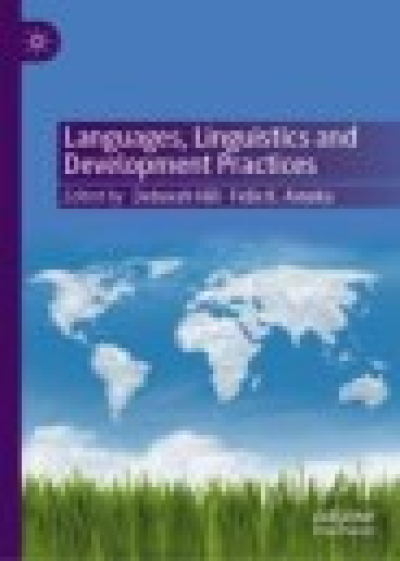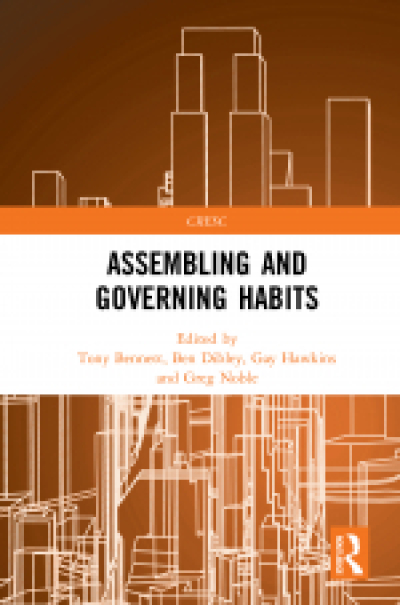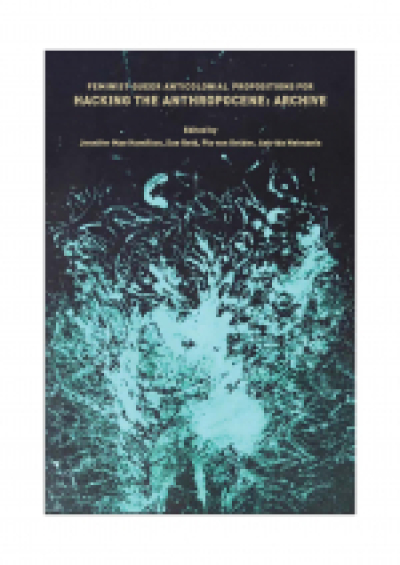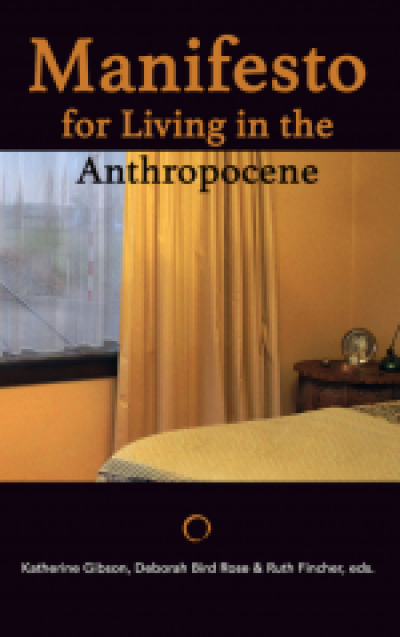The concept of the commons has gained traction across multiple disciplines as researchers explore ways we might live ‘in common’ with other people and the world around, and with consideration for the wellbeing of current and future generations. This chapter traces how the work of human geographers builds on research in other fields, including ecology, political science and history. It shows how human geographers attend to processes of commoning with examples drawn from commons on land, air and sea.
Chapters
This article is an interview with four researchers about the role of community and community-based initiatives in climate adaptation in urban contexts
This chapter draws on two initiatives situated in Thailand and Cambodia, inspired by strength-based capacity building approaches known as ‘asset-based community development’ (ABCD) and ‘Appreciative inquiry’ (Ai). Our approach challenges western-centric conceptions of equality in participatory design and novelty in creative process. In Cambodia, a failed experiment with bamboo furniture led to the re-evaluation of welfare safety nets and sustainable social arrangements.
Resilience has become a “buzzword” of our time. It is commonplace to hear individuals, communities, organisations, and systems described as resilient. Resilience has also become a buzzword In development discourse and practice. World Bank programmes for instance, refer to ‘resilient cities’, ‘resilient institutions’ and climate risk management ‘resilience strategies’. As noted by developer thinker Andrea Cornwall (2007), buzzwords tend to garner general abstract consensus around the importance of certain concepts but they equally can be vague and ‘fuzzy’, providing little sense of what a concept actually ‘looks like’ or how it translates in practice and in specific contexts. Here, we provide some clarity around the concept of resilience and how it is used in development today.
Trading for a social purpose is nothing new; the Red Cross began trading in order to supplement revenues during the First World War. However, since the 1980s, the not-for-profit sector in many countries has taken a stronger commercial turn. Policy makers in the ‘rich world’ initially became appreciative of social enterprise’s potential for regional development and competitive public services.
This chapter, written for the Handbook of Alternative Theories of Political Economy, introduces the two primary theoretical traditions that have shaped diverse and community economies research and practice: anti-essentialist Marxian political economy and feminist poststructuralism. The chapter discusses the contribution of these two traditions highlighted how they have shaped the diverse economies and community economies approach. The chapter also includes a discussion of the ever-evolving practice of making community economies and some research directions for a political economy of possibility.
Letter to Julie was written especially for Antònia Casellas's collection, J.K. Gibson-Graham. Hacia una economía postcapitalista o cómo retomar el control de lo cotidiano [J.K. Gibson-Graham. Towards a post-capitalist economy or how to regain control of everyday life], published by Editorial Icaria, Barcelona.
The English translation of the Letter is provided here. In the Letter, written in 2020, Katherine updates Julie on what has happened in the area of diverse and community economies scholarship in the ten years since Julie's death, and on recent events including the climate emergency, COVID-19 and Black Lives Matter.
Contemporary systems of healthcare and other industries are largely defined by their neoliberal, capitalist character. However, this parochial approach to understanding the political economy of healthcare misses the myriad activities that make up the “care” in healthcare. Receiving care is not isolated to capitalist exchanges, nor is it unquestionably tied to the neoliberal marketplace. There exist diverse economies of care within, outside, and alongside neoliberal capitalist ones. Moreover, there are multiple means by which we may define care that are often overlooked. In many cases healthcare that cannot be counted, does not count, as it relates to capitalist exchange.
This chapter is about asset-based community development (ABCD) in Mindanao. Specifically, it is about a locally adapted ABCD approach that has emerged from development practitioners adapting and translating ABCD concepts and methods to make them more culturally relevant. The chapter examines how the use of language and communication tools, in conjunction with an emphasis on local empowerment, contribute to enabling a more culturally relevant form of ABCD. The chapter opens up a space of conversation between linguists, development scholars, ABCD practitioners, and a larger research community. It invites wider application of learnings from Mindanao, and furthers thinking on the application of linguistics in development theory and practice.

This short essay is part of the last volume in the Future Cities Laboratory Indicia Series. It contributes to the principle of 'Stimulating Diverse Economies' in designing sustainable future cities. The paper is an invitation for various social and institutional actors to accommodate diverse livelihoods. It suggests that for cities to become genuinely resilient, their design and development need to pay attention to the plural and entangled forms of work that are crucial in creating a sustainable condition for both human and earth others to flourish.
For several months, we, the three authors, met once a week to share stories about our evolution as social justice educators. While we come from different back- grounds and are different ages, we have each pursued a career in academia, moti- vated by a desire to address social injustice. Different identities and experiences have shaped our lives, but we share a common understanding of social justice and a collective desire to make an impact on the lives of our students. We are Korean, Black, and White, all raised in the United States. We are cisgender heterosexual, bisexual, and gay. We are from the northeast and the south. Together, our ages span two decades. We were raised upper-middle, middle, and lower middle class.
This chapter extends upon the book's discussions of habit to the process of adapting to anthropogenically induced global warming. We reveal the role of designed practices, products and infrastructures in habituating urban populations to a changing climate. Our central concern is the ‘world within the world’ design has helped to create. In the rapidly densifying city, atmospheric commons are shaped and reshaped by human design; climate change is lived and felt in hostile heat islands and polluted, particulate-laden city air. Design offers a critical perspective on the dynamics that have shaped the city and organised the civic practices of its inhabitants.

This is a chapter on Community Economies for the Routledge Handbook of Global Development. The chapter discusses how a community economies approach to development focuses on seeking out and strengthening already existing post-capitalist worlds. This involves community economies scholars using action research methods to work with community-based partners to help make post-capitalist activities more visible, and then to devise ways and means to build on and strengthen these activities.
This chapter in a book about post-capitalist futures outlines a community economies approach to post-capitalism. The chapter describes how a community economies approach to post-capitalist futures starts in the here and now with what is ‘at hand’ to build a more just and a more sustainable world and it highlights two strategies that community economies scholars and activists use to help strengthen existing post-capitalist practices. One strategy is to identify existing economic diversity and the ways it is being used for more just and sustainable economies; the second is to engage in actions to strengthen these economies.
Greenfield Community College’s (GCC) faculty and staff are predominantly white (93%) and though most espouse progressive politics and have the best of intentions, conversations on campus focused on race or racism are still difficult. In an attempt to address this challenge, we created a book group based on Robin DiAngelo’s White Fragility: Why it’s so Hard for White People to Talk About Racism.
PAR is a methodology that democratizes research by transforming the relationship of researcher and participants to where they are working together to actively learn about and create change in the world. In the context of student success for Black, Indigenous and other people of color (BIPOC) and other underserved students, the best place to learn about this is by recruiting students to become co-researchers and engaging students to help analyze the data and collaborate in finding ways to improve student success.
Increasingly, other-than-scientific questions and creative expressions of climate change are gaining ground as legitimate forms of new knowledge in the fields of feminism, environmental humanities, environmental cultural studies and design studies, of which this piece of work is a part. The work offers a novel contribution to this interdisciplinary scholarship by creatively interpreting the perspectives, experiences and practices of people living with urban heat in Penrith NSW as an imagined conversation between a mother and child.

How to create the social and material conditions that make critical, transformative design practice possible? This question continues to drive us in our work, especially because we are convinced that if we want design skills to be used for the creation of a world into which many worlds fit, then lots of people interested in doing such transformative work need to be enabled to do it repeatedly and in the long-run.
Purporting that particular manifestations of social enterprises are conditioned, at least in part, by the cultural context in which they are enacted (Peredo & McLean 2006), the chapter seeks to unveil the ethnocentrism inherent in dominant renditions of social enterprise by zooming in on a United Nations project geared toward promoting entrepreneurial activity in and, ultimately, the livelihood of indigenous Cambodian forested communities. This research explores the everydayness of social enterprise among an indegenous resin tapper community in two adjacent villages, in Rovieng District which lies to the south of Preah Vihear Province in northern Cambodia.
This is a translation of Chapter 2 by Gibson Graham and Miller in the book MANIFESTO PARA VIVIR EN EL ANTROPOCENO Katherine Gibson, Deborah Bird Rose, and Ruth Fincher, editors (Manifesto for living in the Anthropocene, in English).

Fair trade certified exchanges are often cast as an ethical purchasing choice compared to those conducted as part of free trade. Producers are cast as members of marginalized communities who can ‘lift themselves out of poverty’ by producing for the certified market. Third-party certifiers claim that consumers can empower producers, reduce poverty, and improve communities through their purchases. Here, fair trade exchanges may be read as a site of ethical encounter. In this chapter I argue that despite attempts to cast fair trade as an ethical encounter, these claims are mired in a capitalocentric worldview that puts profit ahead of people.
This chapter looks at social enterprise through a lens inspired by community economies and post-development. Without refuting that any trading enterprise must take form in one way or another, the authors look beyond essentialist models towards the embodiment of ‘social enterprising’; a term capturing various processes and intuitions that enact the social through bold economic experiments and that help multispecies communities to live well together. ‘Decolonial love’ and Buddhist teachings of ‘loving kindness’ (Mettā) are mobilized as a way of framing context in Eastern Cambodia and a University Town in Central Canada.
In this chapter, Joanne and Kelly discuss partnerships between Indigenous methodologies, such as Kaupapa Māori research, and community economies research.
In this chapter, Kelly lays out the case for proliferating and valuing caring labour, so that all kinds of different people might share in it.
Humans depend on fungi to provide food and medicine, and to maintain the environments we inhabit. Yet their conservation has not captured the attention of conservationists, perhaps because existing normative economic, ecological, and social ways of creating value for plants and animals are a challenge to adapt for fungi. Using a critical physical geography perspective, this chapter argues that the value of fungi becomes clearer using alternative forms of accounting focused on interconnectivity. The concept of econo-ecologies refocuses value on the importance of work and exchange. For fungi, econo-ecological conservation is generated through sustainable livelihood practices, and ethical biogeographies.
This chapter in the Handbook of Environmental Sociology is based on a particular understanding of post-capitalism, as a series of strategies for socio-economic-ecological negotiations. These strategies engage 1) the politics of language, 2) the politics of the subject, and 3) the politics of collective action. Understanding language, subjects, and collective actions as spaces for political engagement is about considering them as processes actively and always under negotiation rather than as fixed objects. Using these strategies I consider the question: what does sustainability look like in a post-capitalist world? Specifically, how can a post-capitalist politics support and enrich the concept of emplaced sustainability?
Environments and ecosystems around the world support human life, culture and basic needs in myriad ways. Indeed, the ‘labour’ of non-humans, or Earth Others, as we refer to them here, is hugely diverse. But ecological descriptions of Earth Other interdependencies demonstrate that rethinking labour to build sustainable futures should not be a purely human-focused project. Much of the work that keeps our planet going has nothing to do with humans. We humans benefit from it but it is not for us. Today a growing dissatisfaction with an exclusive focus on human livelihoods at the expense of planetary livelihood has created a demand to attend to non-human labour and the work it does. In this chapter we explore the work Earth Others do. What does it look like?
